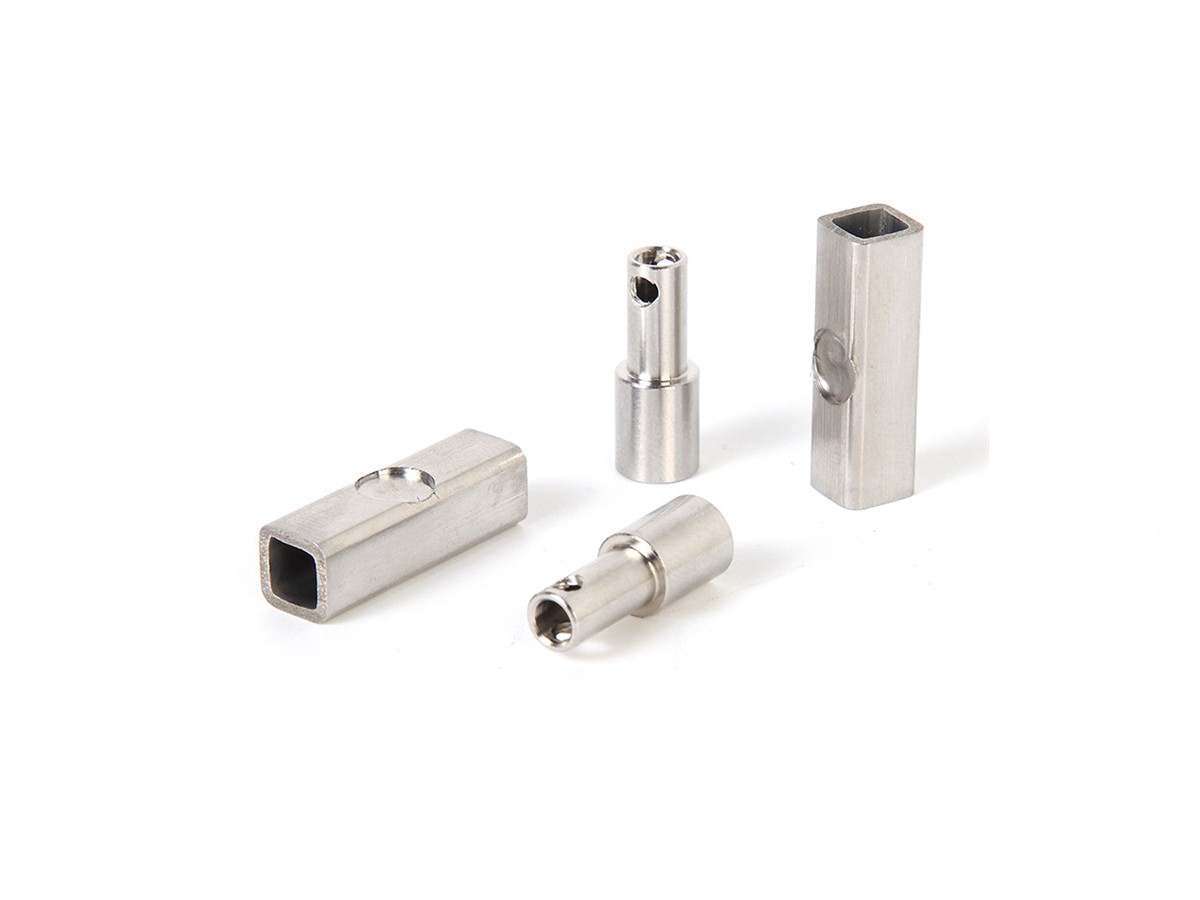CNC Machined Titanium Parts for Medical Implants and Surgical Tools
Introduction to CNC Machined Titanium Medical Components
Medical implants and surgical tools demand extreme precision, biocompatibility, durability, and reliability, making CNC machining an indispensable method in their manufacturing. Titanium alloys, notably medical-grade Ti-6Al-4V (Grade 5), Ti-6Al-4V ELI (Grade 23), and commercially pure titanium (Grade 2), are extensively used due to their exceptional strength, lightweight properties, biocompatibility, and superior corrosion resistance.
Utilizing expert CNC machining services, manufacturers produce intricate titanium components such as orthopedic implants, bone screws, spinal cages, dental implants, and specialized surgical instruments that meet stringent medical quality and regulatory standards.
Material Performance Comparison for Titanium Medical Components
Material | Tensile Strength (MPa) | Yield Strength (MPa) | Biocompatibility (ISO 10993) | Corrosion Resistance (ASTM F2129) | Typical Applications | Advantages |
|---|---|---|---|---|---|---|
950-1100 | 880-950 | Excellent | Outstanding (>1200 mV breakdown potential) | Orthopedic screws, joint replacements | High strength-to-weight ratio, biocompatible | |
860-950 | 795-880 | Superior | Excellent (>1300 mV breakdown potential) | Spinal implants, trauma plates | Low oxygen content, superior biocompatibility | |
345-485 | 275-345 | Excellent | Excellent (>1200 mV breakdown potential) | Dental implants, surgical tools | Exceptional corrosion resistance, high ductility | |
900-1050 | 800-950 | Superior | Excellent (>1200 mV breakdown potential) | Surgical implants, specialized tools | Excellent fatigue resistance, biocompatible |
Material Selection Strategy for CNC Machined Titanium Components
Selecting the right titanium alloy is crucial for medical implants and tools, balancing biocompatibility, mechanical strength, and corrosion resistance:
Ti-6Al-4V (Grade 5) offers outstanding mechanical properties (up to 1100 MPa tensile strength), ideal for load-bearing orthopedic implants like joint replacements, bone screws, and fixation devices.
Ti-6Al-4V ELI (Grade 23) contains reduced oxygen levels, enhancing biocompatibility and corrosion resistance (breakdown potential >1300 mV), and is preferred for critical implants such as spinal fusion devices and trauma plates.
Pure Titanium (Grade 2) exhibits excellent ductility and corrosion resistance, making it optimal for dental implants, minimally invasive surgical instruments, and precision tools.
Ti-6Al-7Nb provides superior fatigue resistance and exceptional corrosion protection, suitable for specialized surgical implants exposed to cyclic stresses.
CNC Machining Processes for Titanium Medical Components
CNC Machining Process | Dimensional Accuracy (mm) | Surface Roughness (Ra μm) | Typical Applications | Key Advantages |
|---|---|---|---|---|
±0.005 | 0.2-0.8 | Complex orthopedic implants | Precise multi-axis machining | |
±0.005-0.01 | 0.4-1.2 | Bone screws, cylindrical instruments | High rotational accuracy | |
±0.002-0.005 | 0.1-0.4 | Surgical blades, precision pins | Superior surface finishes | |
±0.01-0.02 | 0.8-1.6 | Implant fixation holes, surgical instruments | Accurate and repeatable hole placement |
CNC Process Selection Strategy for Titanium Medical Components
Choosing the most suitable CNC machining methods ensures precise and reliable medical implants and instruments:
5-Axis CNC Milling enables high complexity and intricate geometries required by orthopedic implants, such as spinal cages and joint replacements, maintaining tolerances within ±0.005 mm.
CNC Turning ensures dimensional precision (±0.005 mm) essential for manufacturing cylindrical titanium components such as bone screws and surgical tool shafts.
CNC Grinding achieves extremely tight dimensional tolerances (±0.002 mm) and ultra-smooth surfaces, crucial for precision cutting tools, blades, and delicate surgical components.
Precision CNC Drilling delivers consistent hole accuracy (±0.01 mm), essential for reliable fixation points in orthopedic implants, ensuring secure surgical implantation.
Surface Treatment Performance Comparison for Titanium Medical Components
Treatment Method | Surface Roughness (Ra μm) | Biocompatibility (ISO 10993) | Corrosion Resistance (ASTM F2129) | Surface Hardness | Typical Applications | Key Features |
|---|---|---|---|---|---|---|
0.4-1.0 | Excellent | Outstanding (>1200 mV breakdown potential) | N/A | Surgical tools, implants | Enhanced surface purity, corrosion resistance | |
0.4-1.0 | Excellent | Excellent (>1200 mV breakdown potential) | HV 400-600 | Orthopedic implants, fixation screws | Improved corrosion resistance, surface durability | |
0.1-0.4 | Excellent | Excellent (>1300 mV breakdown potential) | N/A | Surgical instruments, dental implants | Ultra-smooth surface, reduced bacterial adhesion | |
0.1-0.3 | Excellent | Superior (>1500 mV breakdown potential) | HV 1500-2500 | Surgical cutting instruments | Extreme wear resistance, enhanced longevity |
Surface Treatment Selection for CNC Machined Titanium Medical Components
Choosing proper surface treatments significantly enhances medical implant safety, biocompatibility, and durability:
Passivation provides exceptional surface purity and corrosion protection, which are essential for titanium surgical instruments and implantable devices.
Anodizing enhances corrosion resistance and provides durable surface finishes (HV 400-600), ideal for orthopedic implants and surgical fixation screws.
Electropolishing yields ultra-smooth finishes (Ra ≤0.4 µm), essential for minimizing bacterial adherence on titanium surgical blades and implants.
PVD Coating dramatically improves surface hardness (HV 1500-2500), increasing the lifespan and effectiveness of titanium surgical cutting tools.
Typical Prototyping Methods for Titanium Medical Components
CNC Machining Prototyping: High-precision titanium prototypes (±0.005 mm) ideal for design verification and clinical evaluation.
Rapid Molding Prototyping: Fast manufacturing of functional medical prototypes for rigorous real-world testing.
Metal 3D Printing (Powder Bed Fusion): Allows quick prototyping of titanium implants (±0.05 mm accuracy), facilitating rapid design iterations.
Quality Assurance Procedures
CMM Inspection (ISO 10360-2): Ensures titanium component accuracy within ±0.005 mm.
Biocompatibility Verification (ISO 10993): Confirms material safety for medical use.
Surface Roughness Testing (ISO 4287): Verifies compliance with medical device standards.
Non-Destructive Inspection (ASTM E1444, ASTM F601): Detects defects, ensuring component integrity.
ISO 13485 Certified Documentation: Maintains traceability, regulatory compliance, and quality assurance.
Related FAQs:
Why is titanium preferred for medical implants?
How does CNC machining enhance medical implant quality?
Which surface treatments improve titanium medical tools?
Why prototype titanium medical components?
How is quality ensured in titanium implant manufacturing?

